The UPC and unitary patent: momentum gathers
28 April 2014
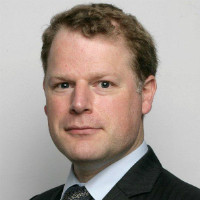
Paul England and Christof Höhne throw light on the status of the UPC and unitary patent as momentum gathers.
On February 19 2013 the representatives of 24 EU governments met in Brussels to sign the Unified Patent Court (UPC) Agreement, which creates a court in which future unitary patents and classic European patents can be litigated – effectively, a one-stop shop for participating EU member states. This historic date marks the start of implementation for a project that has kept European lawmakers busy for nearly 40 years. Here we examine the practical achievements of the last 14 months and highlight the challenges yet to be met before the court can open its doors.
The patent reform package
The UPC is part of a bigger package of patent reforms which consists of three linked elements:
- the introduction of a unitary patent (EU Regulation 1257/2012) – the full title of this right is a European patent with unitary effect;
- special language arrangements for the unitary patent (EU Regulation 1260/2012); and
- a treaty on the UPC (international law).
Under the current system, the European Patent Convention provides for a centralised application procedure in which the European Patent Office grants bundles of national patents across Europe. Disputes about patents after grant (with the exception of patents opposed at the office within the first nine months) are adjudicated exclusively by national courts.
In contrast, the new unitary patent will be a single patent covering all ratified EU states (this currently excludes Italy and Spain – which did not sign the unitary patent legislation – and Poland, which did not sign the UPC Agreement). It will be enforceable and revocable in all of these territories simultaneously by the UPC. The unitary patent will thus represent a key component of the European single market, but will co-exist alongside the existing system of classic European patents and national patents.
As well as unitary patents, European patents will be subject to the UPC’s exclusive jurisdiction. However, there is the possibility of opting out of the UPC’s exclusive jurisdiction during the seven-year transition period. National patents – and European patents that have opted out – will remain actionable only in the national courts. The UPC’s real power is thus its ability to revoke patents and issue pan-European injunctions across 24 contracting states.
The UPC will have a number of divisions across Europe: local and regional divisions making up a court of first instance, together with a central division split between three locations – Paris, London and Munich. Appeals will be heard by an appeals chamber in Luxembourg.
Progress since February 2013
Rules of procedure
A key factor in the UPC’s success will be its rules of procedure that. These provide the detail of how proceedings in the UPC will work for every kind of action it is competent to hear. The 16th draft of these rules was published in March 2014, addressing many of the gaps and concerns identified as a result of last year’s public consultation.
Practical implementation
A preparatory committee has been established to deal with practical implementation of the UPC. This is responsible for managing the financial aspects of the court, its IT systems, facilities, human resources and training. It is also responsible for issuing guidance on legal issues that require urgent clarification before the court can open for business. In this capacity, it has already issued an interpretative note on the law that will apply to opted-out patents.
A key area of progress overseen by the preparatory committee is the recruitment and training of judges. Having received 1,500 responses after its initial request for interest of November 30 2013, the committee is now believed to have categorised the candidates according to their degree of eligibility and training needs. In parallel with this, a dedicated training centre – which will function as a coordinating office for the training of judges and candidate judges for the UPC – was officially opened on March 13 2014 in Budapest.
National progress in ratifying and setting up court divisions
A further major development since February 2013 was the first ratification of the UPC. Thirteen ratifications will be needed before the UPC and the unitary patent can come into force. So far, Austria, Malta and France (subject to the formality of depositing the instrument of ratification) have ratified the agreement. France’s ratification is particularly significant because – as with that of Germany and the United Kingdom – the court cannot proceed without it. Meanwhile, the Intellectual Property Bill, through which UK ratification of the UPC Agreement will be achieved, passed through the report stage and third reading in the House of Commons on March 12 2014. The bill has yet to pass through the House of Lords and receive royal assent.
The third mandatory country, Germany, has not yet ratified the agreement. Nonetheless, the federal minister of justice announced in March 2014 that Germany will host local divisions in Dusseldorf, Mannheim, Munich and Hamburg, subject to final confirmation government. These local divisions will be in addition to the Munich branch of the central division.
On March 4 2014 Estonia, Latvia, Lithuania and Sweden concluded an agreement to create a regional Nordic-Baltic division of the UPC, with its seat in Stockholm. The division will use only English as the language of proceedings. However, Denmark and Finland are notable by their absence from this regional division. Finland’s intentions are currently unclear, but on February 21 2014 the Danish government announced that it plans to establish a Danish local division in Copenhagen, provided that there is a positive result in a referendum on Denmark’s accession to the UPC.
Remaining obstacles
With all of these developments, there are still a number of obstacles. From a practical point of view, IT, staffing and funding issues still need to be resolved. In addition, there are various critical issues which could well have a decisive bearing on the UPC’s success, the most significant of which is costs (eg, fees for validation, litigation and opt-outs). Further, it will have to be determined how the new court will fit into the jurisdictional regime governing national courts, particularly as regards which court is first seized of an action and the avoidance of duplicative proceedings. This is to be regulated by the suit pending provisions of the amended EU Regulation 1215/2012 on jurisdiction and the recognition and enforcement of judgments in civil and commercial matters. This regulation is expected to come into force on January 10 2015, well ahead of the expected opening of the UPC’s doors.
While the 16th draft of the rules of procedure have clarified many matters, many issues still need finalising, including the language in which a statement of claim must be lodged. It is understood that the question of whether the opt-out for a classic European patent endures for the life of that patent or merely for the period of the opt-out is under consideration by the committee. However, it has been recognised that other details – such as the UPC’s approach to the grant of preliminary injunctive relief, and search and seizure – can be worked out only by the UPC judges themselves over time.
Last, but not least, Spain remains opposed to the new system and two legal challenges await a decision from the European Court of Justice (Cases C-146/13 and C-147/13). No predictions can reliably be made about the outcome of these actions and the disruption that might ensue if Spain’s objections are upheld. However, even without this potential hazard, the preparatory committee has much to do before the UPC can become a reality. Indeed, it has recently acknowledged that it does not expect the UPC to be operational until the end of 2015 at the earliest.
However, the impression is nonetheless that momentum is building towards the day when the UPC opens for business.
Paul England is a senior associate located in London and Christof Höhne is a counsel in Düsseldorf






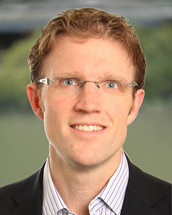

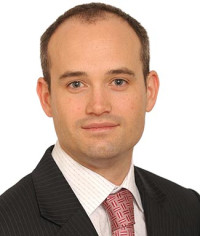
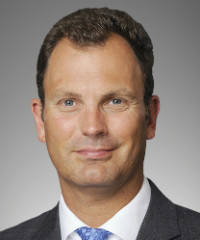


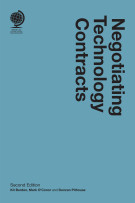
Any comments - send us an email